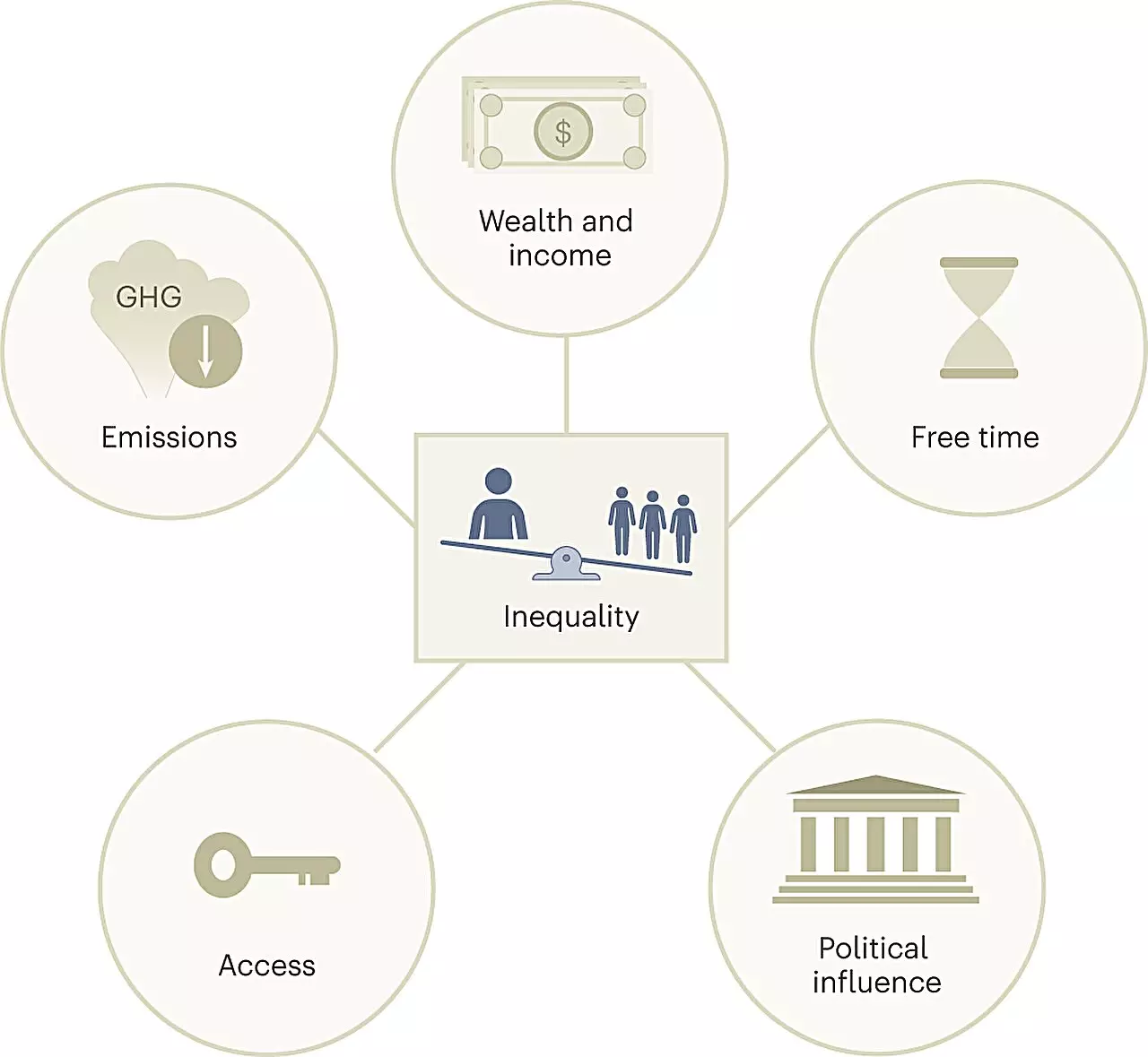It is widely recognized that promoting climate-friendly behaviors is essential in the fight against climate change. However, a recent report published in the journal Nature Climate Change highlights the importance of addressing inequality in order to effectively achieve a Net-Zero future. The researchers argue that inequalities in society create barriers that limit the ability of individuals to adopt low-carbon behaviors. In order to truly mitigate climate change, changes must be made across all income brackets.
Acknowledging the Challenges Faced by Low-income Individuals
While it is true that wealthy individuals often have larger carbon footprints, they also have the means to reduce their emissions more easily than those on lower incomes. This discrepancy is often not given enough attention in political discussions and policy-making. Low-income individuals face numerous barriers, including financial constraints, limited free time, and a lack of access to climate-friendly options such as public transport and housing insulation subsidies.
The researchers emphasize the need for policymakers to provide equal opportunities for low-carbon behaviors across all income brackets. This involves addressing inequalities in terms of wealth and income, political influence, free time, and access to low-carbon options. By recognizing and addressing these barriers, it becomes possible to empower individuals from all socioeconomic backgrounds to make a positive impact in the fight against climate change.
Challenges and Solutions for Low-carbon Behaviors
The report highlights several specific challenges related to low-carbon behaviors and proposes potential solutions:
1. Insulation of Homes
In the United Kingdom, insulating houses can be costly, and government subsidies usually only benefit homeowners, leaving renters at a disadvantage. Many old houses in the UK lack proper insulation, making them less energy-efficient. The researchers call for government schemes that make it financially feasible for people in lower income groups to reduce their carbon emissions by improving the insulation of their homes.
2. Plant-based Diets
Adopting a plant-based diet is a highly effective way to reduce an individual’s carbon footprint. However, plant-based meat alternatives can often be more expensive than animal products. This price difference poses a barrier for individuals with lower incomes. The researchers suggest that efforts should be made to make plant-based alternatives more affordable and accessible for everyone, regardless of their economic status.
3. Low-carbon Transportation
Transitioning to low-carbon transportation options, such as electric cars or bikes, can have a significant upfront cost. Individuals without permanent employment often cannot benefit from tax breaks or financing available through employer schemes. Moreover, public transportation services, particularly in rural areas, may be inadequate, making it difficult for many to rely on public transport as a low-carbon alternative. The researchers highlight the need for policies that address these barriers and make low-carbon transportation options more affordable and accessible for all individuals.
Overall, the report emphasizes that promoting low-carbon behaviors should not solely rely on providing information to individuals. While education is crucial, there are numerous barriers beyond knowledge that must be addressed. Policymakers are urged to implement a range of interventions, including urban planning that prioritizes sustainable transport options, progressive taxation rates to address wealth and income inequality, and employer initiatives that support low-carbon meal options.
Addressing inequality is a fundamental aspect of promoting climate-friendly behaviors and achieving Net-Zero. The barriers faced by low-income individuals must be recognized and addressed in order to create a society where everyone has the capacity to make positive changes. By implementing policies that provide equal opportunities for low-carbon behaviors across all income brackets, we can move closer to a sustainable future and effectively mitigate the impacts of climate change.


Leave a Reply